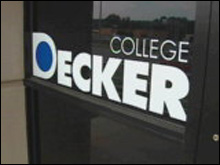 Bill Weld is loaded. Why did he decide to become an equity investor instead of just writing novels and fishing? Don’t underestimate the appeal of making lots of money, a challenge he had never taken on. His long-time friend C. Kevin Landry says he asked Weld why he was resigning as governor in 1997, and Weld replied, “I’ve never had a big W-2.”
Bill Weld is loaded. Why did he decide to become an equity investor instead of just writing novels and fishing? Don’t underestimate the appeal of making lots of money, a challenge he had never taken on. His long-time friend C. Kevin Landry says he asked Weld why he was resigning as governor in 1997, and Weld replied, “I’ve never had a big W-2.”
Didn’t he foresee the potential political fallout from that line of work? It would be hard for him to have missed it. He had a front-row seat in 1994 when Ted Kennedy blasted Senate challenger Mitt Romney for layoffs at Bain-invested companies. In 2004, Erskine Bowles’s North Carolina campaign for US Senate was dominated by criticisms of his equity investment firm, Forstmann Little.
How did Weld get involved with Leeds Equity Partners? He began doing business with them while working for law firm McDermott Will in the late 1990s, and switched firms in 2000, creating Leeds Weld Equity Partners. This was the same time he was moving to New York to join soon-to-be second wife Leslie Marshall (and, fortuitously, establishing residency in time to be eligible to run for state office in 2006). The firm was focused on investing in for-profit education companies, which suited Weld’s privatization beliefs, and probably seemed at the time like a potentially good campaign issue. “He has always been interested in education and the role that the private sector could contribute,” says long-time Weld friend Mitchell Adams.
How did he get involved with Decker College? In 2002, Leeds Weld made a very bad business decision, buying a $30 million stake in a chain of truck-driving schools, Franklin Career Services, owned by Louisville brothers Gerard and Jeffrey Woodcox. The company collapsed within months. The Woodcox brothers promptly bought Decker College, and Leeds Weld compounded its mistake by exercising its right to buy a stake in that venture. Weld, the point man on the investment, joined the Decker board of directors and, in 2003, he became acting CEO. In January 2005 he officially took the CEO job and started spending much of his time in Louisville.
Was he still ignoring the potential political fallout? Apparently. In fact, Weld was increasing his involvement in Decker even after his firm started pulling out of education in August 2003, citing “political risks.” In a written statement announcing the shift, Jeffrey Leeds said that “Leeds Weld no longer view companies that pursue privatization of education as likely to generate the long-term growth necessary to offset these risks.”
So why did he keep getting sucked further into Decker? For one thing, he had a lot of his own money at stake, and was responsible for the money his partners had invested as well. He had also reportedly become good friends with the Woodcox brothers, and didn’t suspect that they might not be trustworthy. And, he probably didn’t really understand how serious the problems were. “You would expect if he was a real CEO to get in that level of detail,” Landry says — meaning that equity investors frequently take such positions at several companies, not devoting full attention to any one.
Did he walk away from Decker to avoid legal and political problems? The timing certainly looks bad: he officially resigned as Decker CEO on October 6, one week after the US Department of Education declared Decker ineligible for student loans, and one day after the Kentucky attorney general announced plans for an investigation. But in fact, Weld’s active participation in Decker ended almost immediately after New York governor George Pataki announced, in late July, that he would not seek re-election. Weld quickly turned his full attention to organizing his campaign.